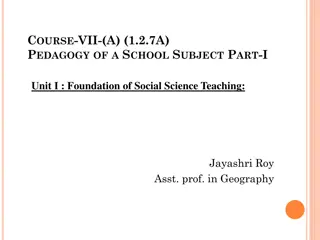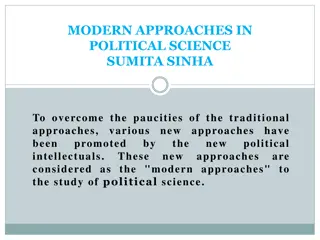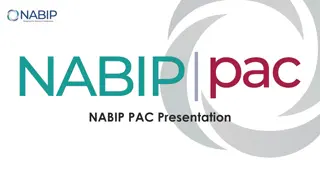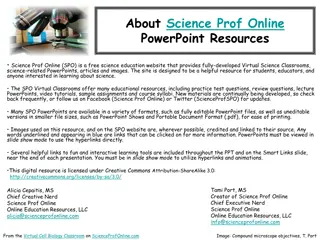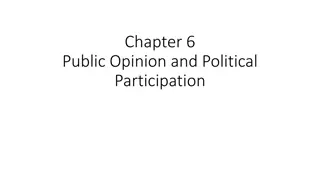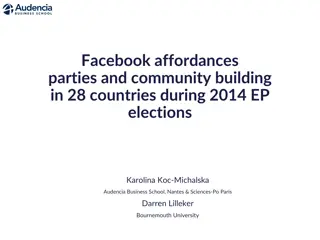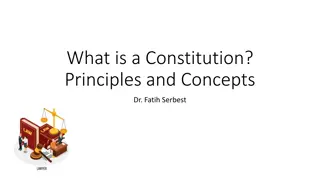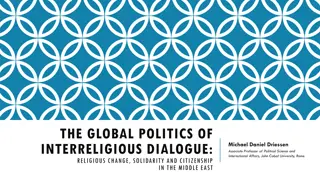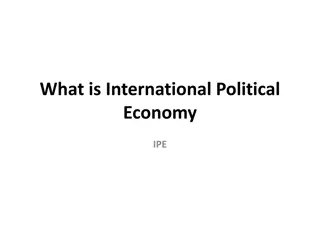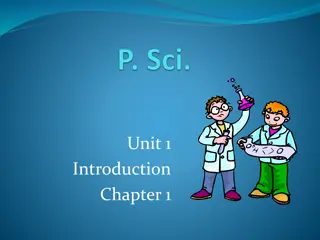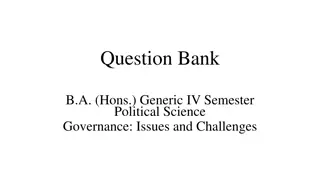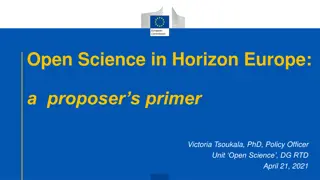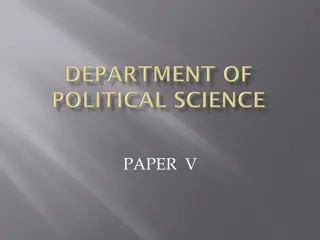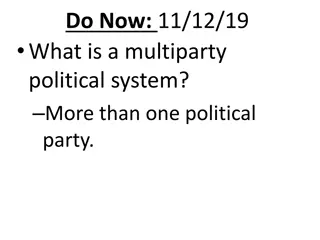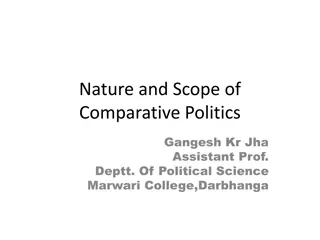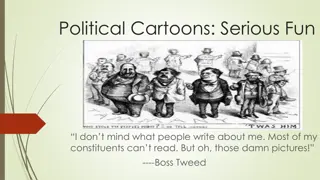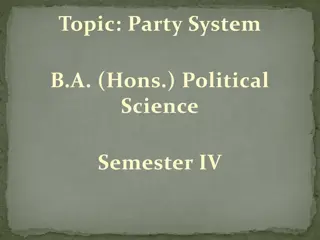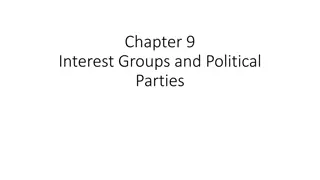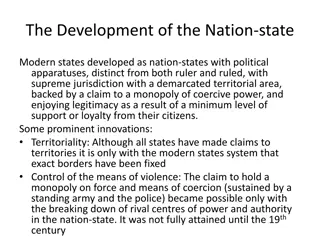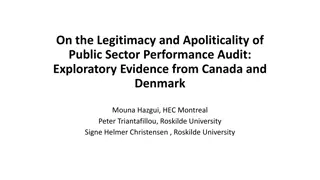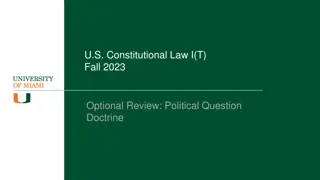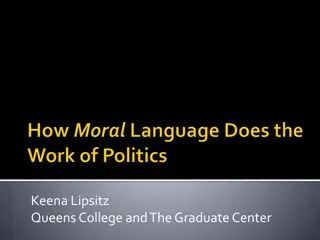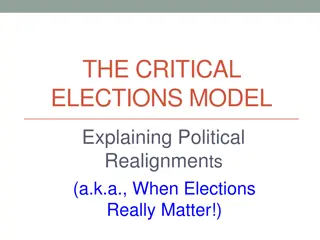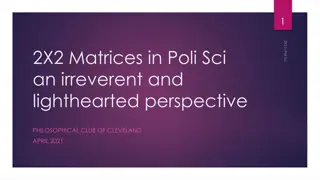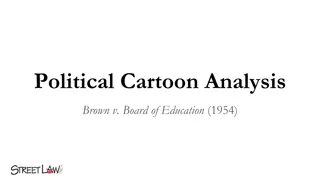Understanding Political Science: A Comprehensive Overview
The study of political science delves into various aspects, from the pursuit of the good society to the exercise of power and the allocation of resources. It encompasses specialized fields such as American politics, international relations, comparative politics, public policy, and political philosophy. Political science emphasizes empirical analysis, causal reasoning, and the scientific method to understand and predict political phenomena.
Download Presentation

Please find below an Image/Link to download the presentation.
The content on the website is provided AS IS for your information and personal use only. It may not be sold, licensed, or shared on other websites without obtaining consent from the author. Download presentation by click this link. If you encounter any issues during the download, it is possible that the publisher has removed the file from their server.
E N D
Presentation Transcript
What is the study of political science about? How do we study political science?
Some well known ideas Politics is: The pursuit of the good society (Aristotle) The exercise of power (Machiavelli) The processes by which of things of value are allocated (Harold Lasswell) A means of resolving personal conflict short of using force, and aggregating force for social ends (Thomas Hobbes, social contract theory) The competition among individuals and groups (Robert Dahl s pluralism ) The struggle between groups to define what reality is within the public sphere (post-modern theory) (http://www.pewresearch.org/fact-tank/2018/08/23/republicans- and-democrats-agree-they-cant-agree-on-basic-facts/)
A WORKING DEFINITION OF POLITICS Politics is the process whether it be conflictual or consensual through which power is used within and/or by and/or with impact on the public sphere in the promotion of certain values , interests, or realities
HOW IS POLITICAL SCIENCE DIFFERENT THAN POLITICS? Political science is a discipline that is divided into specialized fields : (1) American politics, (2) international relations, (3) comparative politics, (4) public policy, and (5) political philosophy And many, many subfields. What are the strengths and limitations of having disciplines ? (aka academic silos ?) What do we mostly agree on? In what sense in PSC, scientific? Most political science is mostly empirical rather than normative. It typically seeks to focus on causal analysis (explanatory and predictive). And it typically relies on inference from a small set of cases to generalize.
HOW DO WE STUDY POLITICS SCIENTIFICALLY? Generally speaking, a scientific political science argument is objective, empirical, testable falsifiable, generalizable, replicable, and hopefully cumulative? Why use the scientific method? The method of testing theories and hypotheses by applying certain rules of analysis to the observation and interpretation of reality under strictly delineated circumstances (transmissible). Do this, and you can sometimes replicate and build knowledge Why is it a lot easier than it used to be to study politics scientifically? The spread of democracy, globalization, and technology Is political scientific inquiry all quantitative? Or is there plenty of room for qualitative inquiry? (Why do HPU s PSC and INR majors have to take at least one class that focuses heavily on stats?)










